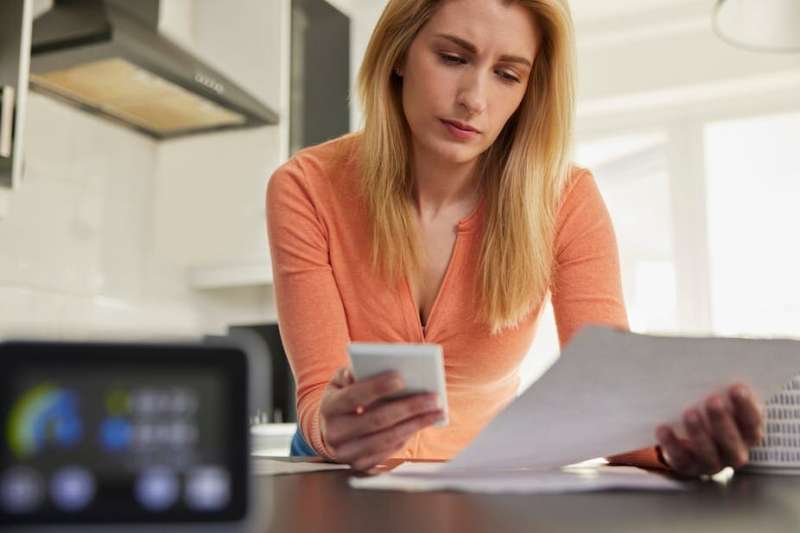Soaring energy prices are squeezing homes and businesses across the UK and Europe, prompting leaders to implement support measures such as the UK’s Energy Price Guarantee. Yet it is often unclear to a consumer how much they are spending on energy. For those not on prepayment meters, there is no direct fee each time a light is switched on or a cup of tea is made.
Energy bills also tend to be paid in average monthly sums spread across a year. This protects households from winter price rises when energy use increases. But it also means that the amount households pay for energy is not directly linked to their daily or monthly energy consumption. This separates households from their energy use and the bills they pay.
Smart electricity meters could change how households use energy. They track a household’s energy use and express the cost on an in-home display.
There are now 25.6 million smart meters installed in homes and businesses across the UK. Though the number of installations varies, an additional one million smart meters are installed on average each year.
The UK government believe that smart meters could cut household energy bills by 2–3% on average based on trials from their nationwide smart meter roll-out program. But research cautions against the benefits of smart meters for households.
Not so smart meters
A smart meter can reveal which of a household’s appliances use the most energy. Their proponents argue that they support behavioral change and incite discipline over energy use by raising household energy consciousness. But the effectiveness of a smart meter depends on the decision of an individual not to consume or waste energy.
Research that I co-authored found evidence that there are gaps in UK households’ understanding of their energy usage. In other words, many households exhibit what we call a low level of “energy literacy”.
Heating control systems can be complex, often involving timers and zonal controls that regulate the temperature across different rooms. We found that it was common for people to misunderstand these systems.
Some of the households interviewed admitted that they did not know how their boiler worked or how to adjust its controls. Others had their heating on continuously and simply turned the boiler on and off at the wall. This can lead to over or under heating parts of a house, resulting in wasted energy. It is therefore likely that those who respond to the prompts offered by smart meters will already be conscientious energy users.
However, the move away from physical heating controls may exacerbate the problem. Not all people will be able and willing to engage with smart meters. While there is a lack of research into the extent of energy literacy across different social groups in the UK, digital exclusion may leave some households still unable to control their own heating.
Understanding fuel bills is also a part of energy literacy. Research shows that many households have a limited understanding of their energy bills. In a 2021 survey, just 46.6% of the 2,520 UK adult bill payers questioned were able to identify the correct definitions of six terms commonly used on their energy bills. Without guidance, many households will be unable to use the information provided by their smart meter effectively.
Energy suppliers instead accrue considerable benefits from smart meters. A smart meter delivers information about a home’s energy use to suppliers remotely and reduces the necessity for routine door-to-door meter reads.
Finding a place for smart meters
Smart meters may prove valuable for households on variable fuel tariffs, where the per unit price of energy they pay varies at the discretion of their energy supplier. The cost of energy rises during the hours where energy demand is at its highest and falls during periods of lower total energy use.
If smart meters are able to convey instant and future unit energy prices then consumers can shift energy intensive activities, such as washing clothing, towards cheaper periods including overnight. The National Grid is trialing a scheme which will compensate energy suppliers for offering households discounts on their electricity bills for reducing their energy use during peak times. The scheme applies to homes with smart meters, who receive an alert 24 hours before the test session.
Energy can also be stored in house batteries and in electric cars. Variable tariffs would allow them to be recharged when energy is cheap and used during periods of peak energy use. Initial trials conducted by renewable energy company Octopus Energy revealed that charging batteries using variably priced energy could save households up to £580 per year.
This would also accelerate the transition towards electrified household heating. If enough homes use variably priced energy to recharge storage batteries and use them to satisfy their peak energy demand, the requirement for backup energy sources to bolster electricity generation during periods of high demand is reduced.
Smart meters may be ineffective at encouraging greater energy consciousness. But in the future they may allow households to take advantage of a flexible energy grid built around variable pricing and energy storage. But given the current energy crisis, there is limited opportunity to switch energy tariffs. When the situation changes in the future, it is likely that smart meters will play a larger role in household energy consumption.

